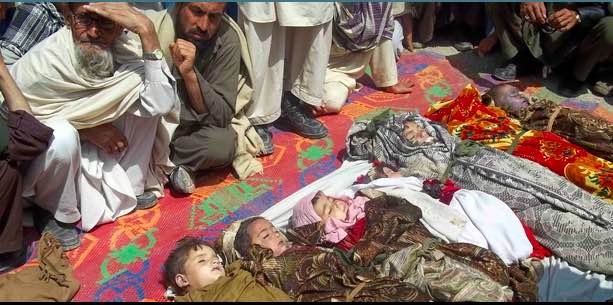
Thanks to America’s unending war, Afghanistna now ranks as the world’s most dangerous nation for children. UNICEF USA)
Senate Passes $738 Billion 2020 Military Spending Bill
Bill orders US intel chief to review who ordered Khashoggi murder
WASHINGTON, DC (December 17, 2019) — In an 86-8 vote, the Senate passed a $738 billion military spending bill for 2020, sending it on to the president to sign. The bill includes substantial authorizations to purchase various warplanes and ships, and funding of nuclear weapons.
The small increase in nuclear weapons spending, which comes without past House restrictions on low-yield weapons. These weapons are intended to be more usable than the existing arsenal, though raise criticism that it would make nuclear strikes far more common.
The bill also establishes a Space Force, following Trump Administration calls for such a force to try to retain a US military superiority in space against largely undefined enemies.
And while almost everything related to the Yemen War and the backlash against the Saudis got stripped from the final bill, language is still within that orders the Director of National Intelligence to issue a report on advanced knowledge and role of the Saudis involvement in the murder of Jamal Khashoggi.
The Khashoggi report would have to come within 30 days of the bill becoming law, and while the Trump Administration has generally ignored Congressional mandates for reports, doing so with part of a military spending bill might be more perilous, and lead to a further backlash.
Trump is reported to intend to sign the bill, and is expected to do so some time next week.
UNICEF Report: Over 600 Afghan Children Killed So Far in 2019

Some of the youngest victims of the Pentagon’s “longest war” in Afghanistan.
Report shows an 11 percent increase over the previous year
(December 17, 2019) — In 2018, Afghanistan was the most violent warzone in the world. 2019 isn’t looking any better, with UNICEF issuing a new report on child casualties in violence in the first nine months of 2019. Casualties are up 11 percent over 2018 levels, with 631 children killed and 1,830 wounded in the conflict in the first nine months.
The increase came because of more bombings, and ground engagements. It’s not just the direct casualties, either, with UNICEF’s report also noting that millions of Afghan children are dependent on humanitarian aid, millions are unable to go to school, and are trying to enter the labor market despite not having any skills.
That’s the disastrous consequence of decades of war, and 18+ years of US occupation built around reconstruction plans that didn’t go anywhere has meant the situation is getting worse and worse.
UNICEF called on all combatants to fulfill international law and protect children, or at least to stop targeting schools and allow them access to humanitarian aid. History is not on the side of this warning leading to positive policy changes.
Posted in accordance with Title 17, Section 107, US Code, for noncommercial, educational purposes.